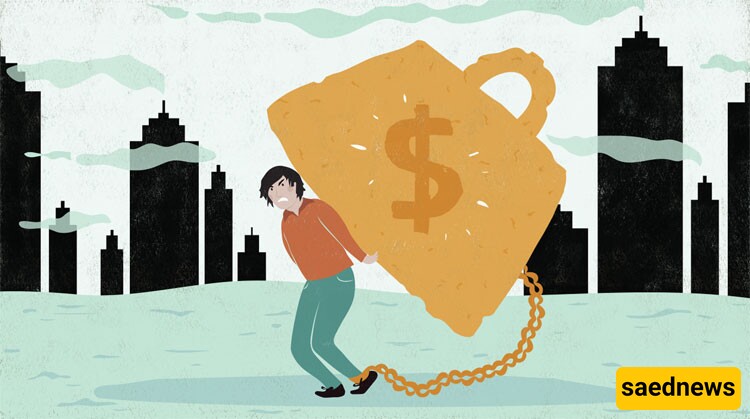SAEDNEWS: Financial stress can deeply affect mental health, leading to anxiety, depression, and strained relationships. Addressing its root causes and learning effective coping strategies are vital for long-term well-being.

According to SAEDNEWS, financial stress deeply affects mental well-being, as issues like debt, unemployment, or inadequate savings create ongoing pressure. These challenges often lead to conditions such as anxiety and depression, erode self-confidence, and strain personal relationships.
Findings have shown that a strong connection between mental health struggles financial difficulties and mental health struggles. The constant uncertainty caused by financial instability fosters feelings of helplessness and emotional distress, which makes it harder to manage both finances and mental health effectively.

Chronic Anxiety
Worries about managing expenses or paying off debts can lead to constant stress, resulting in insomnia, fatigue, and a diminished ability to focus.
Depression
Long-term financial problems can cause feelings of hopelessness and despair, as people struggle to find a way out of their situation.
Poor Decision-Making
Stress impacts cognitive function, leading to impulsive or avoidant financial behaviors, such as ignoring bills or overspending, which exacerbate financial problems.
Social Isolation
The stigma surrounding financial struggles often prevents people from opening up to friends or family, causing isolation and a lack of emotional support.
The link between mental health and financial stress creates a vicious cycle. Poor mental health can reduce productivity and decision-making abilities, which worsens financial problems. As a result, unresolved financial stress amplifies emotional strain, which deepens the mental health challenges. For example, someone facing mounting debts may feel paralyzed by stress, and this leads to inaction that worsens the financial burden and intensifies emotional distress.
Economic Challenges
External factors like inflation, job loss, and rising living costs often create financial strain, leaving individuals with limited resources to manage unexpected expenses.
Pressure to Keep Up
Social expectations and easy credit access can encourage overspending, and this results in debt and financial instability.
Lack of Financial Knowledge
Limited understanding of money management often leads to poor decisions, like overspending or neglecting savings, which increase financial stress.
Recognizing the Problem
Acknowledging financial stress is the first step toward resolution. Avoidance only increases the problem, while proactive steps help regain control.
Budgeting and Expense Tracking
Maintaining a budget allows individuals to manage their resources effectively. Identifying unnecessary expenses and prioritizing essentials can reduce financial strain.
Seeking Help
Professional support from financial advisors or mental health counselors can provide valuable guidance. Personal support from family and friends also eases the emotional burden.
Building Better Habits
Small, consistent changes, like saving regularly or creating debt repayment plans, contribute to long-term financial stability and reduced stress.
Employers can help by offering financial wellness programs or providing fair wages. Flexible work arrangements and access to employee assistance programs also alleviate financial pressures.
By promoting financial education and implementing policies that support debt relief and responsible lending, governments and financial institutions can contribute. These measures provide individuals with tools and opportunities to improve their financial well-being.

Stigma prevents many from addressing financial struggles openly. Encouraging open conversations about money and mental health fosters a supportive environment. Community discussions and awareness campaigns can help normalize seeking assistance, making it easier for people to access the help they need.
Financial stress can have a profound effect on mental health, but it does not have to be a permanent burden. Individuals can break free from the cycle of financial and emotional strain through proactive strategies, support systems, and reducing societal stigma. Addressing financial challenges is about balancing budgets, and also, creating a healthier, more resilient life.

